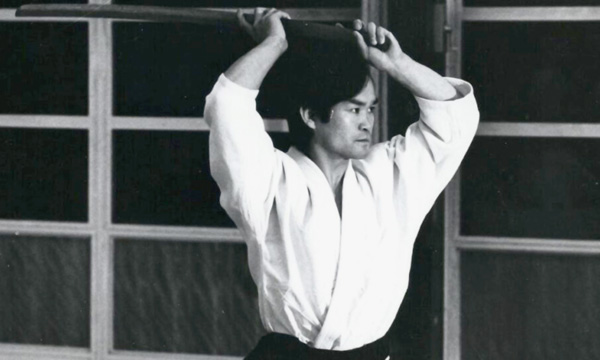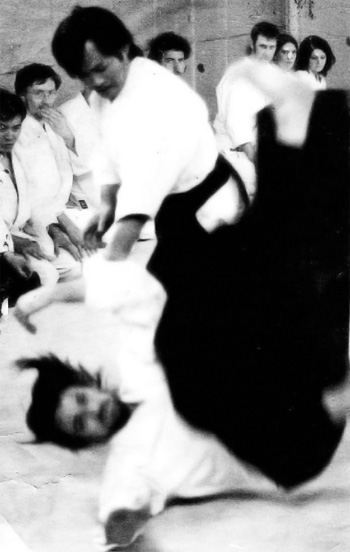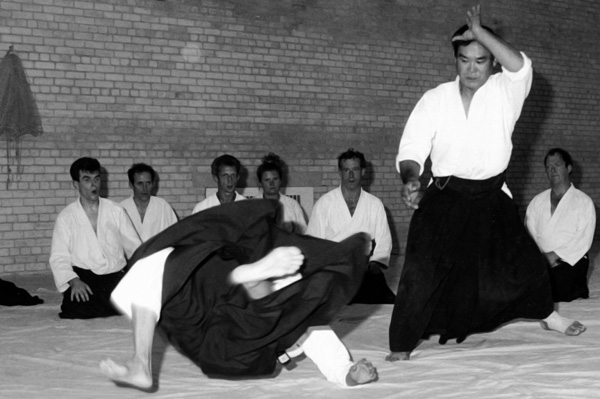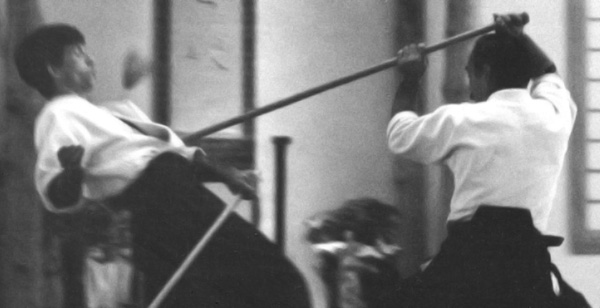
To understand who Chiba sensei was, there is only one thing you need to know: he belonged to the group of those rare people who fall in love with one thing and dedicate their whole life to it. Their whole time, their whole attention.
He was a soldier, one who served Aikido – he believed in his mission and sacrificed his whole self for it. For it he abandoned Japan.
Under the command of O-Sensei he spent 10 years in "barbarous" Britain where they overcook fish and it always rained. Under the same orders, there he spent years building the foundations for the international organisation in Tokyo, and following another command he then went away to spend the rest of his life in the United States.
All because, when he was a teenager, in a small book shop in Tokyo he came across a book about Aikido and first laid eyes upon a portrait of Ueshiba. Apparently, this is the exact moment when he understood that he wanted to follow Ueshiba as his master. He packed his bags, and for three days he sat in front of the dojo waiting for approval to enter.

Regular, composed people are terrified of such characters. They should be. For him, the training or studying wasn’t a hobby but a sense and centre of life. The rest was just a side effect – a marriage arranged by Ueshiba O'sensei, a house close to the dojo. There were no holidays, only summer schools, sleep was only a rest from the training. He hosted the first generation of uchideshi, so he even had to give up his privacy. Home and dojo intertwined – he gave his whole self to people.
For most of us Aikido was a nice hobby, an interesting way of spending one’s time. He was an apostle and a madman, and we were playing with that which he had sacrificed his life for. Like a child who plays with his insurgent father’s gun.
In another time and place he would, most likely, have stood with an axe on the front line of the army, or have been a kamikaze pilot. Or maybe I am mistaken, and he would be a monk?

Aikido is what made him. He was wrenched away from Japan, but he took her everywhere around the world with him. In this way after thousands of years he had more of the old Japan inside him than what was left in his native land. "Wrenched from the field of battle 300 years ago", that is how we used to talk about him.
The art which he sacrificed his life to was not his mask, it was just him. This was why he was not able to play the role of peaceful master. Aikido was his life: complete, natural, honest, and organic. He lived with fascination and anger. With great patience and fits of rage. For us he was the god of Aikido. A concerned god who accepted hard work in silence without praise and punished faults in a divine rage. He broke bones, screamed, and beat.
He was a living man, not a mask. A legend, one of few living students of Ueshiba O-Sensei. After years spent with the founder of Aikido, he knew what he was doing – and no one could challenge that. Inside him he held an ultimate truth which everyone had to agree with. What he was doing was beautiful, terrifying, and true. Around this core, like around the eye of a cyclone, circled broken hands, knee surgeries, bruises, pain, stress, fear, and a sea of sweat. Chiba sensei was honest and open for everyone. Anyone could enter inside if they managed to confront what was happening outside.

Chiba Sensei said:
"There is no way to teach the essence of the art of Aikido to the uncommitted sword. A committed attitude (sword) exposes one to death and, without this, they cannot pass through the solid gate which stands between life and death, creation and destruction, and I cannot help them. The gate will never open to the uncommitted because with endless self-indulgence they become so large with hubris that they crowd each other to every tiny corner of our society."
Chiba Sensei met his death in the same state of mind and the same readiness to die as he lived. Shortly before his death he wrote to all Birankai teachers. It was a very sad and moving letter. Here I wish to quote the sentence that moved me the most. Chiba sensei wrote:
"Several weeks ago, I was told that my cancer had spread and that treatment will only prolong my death, not extend my life. For that reason, I have chosen not to pursue any of the options offered me. I will instead allow what comes to do so naturally."
Rest in peace, dear Sensei.
